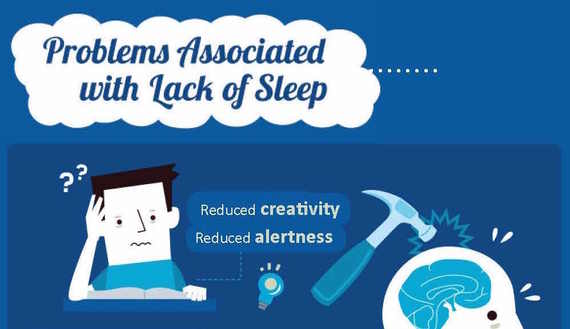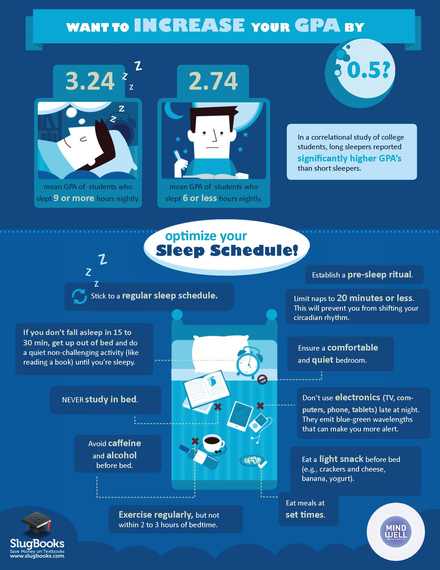
Co-authored by David Baron, MD and the UCLA MindWell Team
The results are in: One in three Americans does not get enough sleep. This is the latest finding in a study released by the Centers for Disease Control and Prevention (CDC) that asked almost half a million adult Americans how many hours of sleep, on average, they get in a 24-hour period.
While precise individual sleep needs vary, experts at the American Academy of Sleep Medicine and the Sleep Research Society recommend at least seven hours of sleep each night for adults. According to the new CDC study, only about 65% of us are meeting this recommendation.
Why Sleep Matters
First of all, why does it matter? Who needs sleep anyway? You've heard people say, "I can sleep when I'm dead." That's true, but not getting enough sleep can actually shorten your lifespan.
Sleeping less than seven hours is associated with higher stress, anxiety and depression, poorer cognitive function (sexual function too), obesity, difficulty controlling high blood pressure, and even cardiovascular risks, not to mention loss of creativity and alertness.
And here's something you might not have thought of: motor vehicle accidents. The number one cause of daytime sleepiness is poor quality or insufficient nighttime sleep. The National Highway Traffic Safety Administration reports 846 fatalities in 2014 and an estimated average of 83,000 car crashes per year between 2005-2009 that were drowsy-driving related. One study found that people who drive after being awake for 17 to 19 hours performed worse than those with a blood alcohol level of .05 percent.
7 Strategies to Sleep Smarter
So what's a work-hard/play-hard, multitasking, over-extended, not-so-well-rested person to do?
We've got two words for you: sleep smarter. You may not have a lot of time for sleeping, but you can sleep smarter by optimizing your sleep routine.
1. Cover the basics: Restful sleep generally requires a reasonably comfortable bed in a dark, quiet location that isn't too hot or too cold. Research suggests an environmental temperature of about 65 degrees is best if sleeping with pajamas and light bedding.
2. Stick to a schedule: Try to consider your sleep time like any other commitment in your busy day. Go to bed and wake up on time!
3. Be smart about screen time: Avoid using electronics (yes, smartphones and tablets, too) late at night as blue-green wavelengths can keep you more alert. Life hack: You can also install f.lux on your devices to remove blue light and adjust your screen according to the time of day.
4. Eat and exercise earlier: Avoid eating large meals late at night, and try to stick to consistent meal times throughout the day. In addition, vigorous exercise within 2-3 hours of bedtime revs you up and makes it harder to fall asleep, while moderate exercise in the late afternoon or early evening can help you sleep.
5. Skip the nightcap: Alcohol can also help you fall asleep but will often wake you up a few hours later (it has a two phase effect on the brain: first sedating, then activating). It's the same deal with marijuana, which also disrupts normal sleep stage progression (i.e. not as much R.E.M. or Stage IV deep sleep).
6. Make bed a sacred space: Save your bed for sleeping and snuggling. Try not to eat, watch TV, text, or talk on the phone in bed. Note to students: Never study in bed.
7. Get sleepy and try again: If you have trouble falling asleep in 15 to 30 minutes, get out of bed and try doing a mellow activity like reading until you feel sleepy.
The science is clear that healthy sleep is critical for a healthy life. Give these strategies a try before you contact your health care provider about sleeping medications. Your doctor will likely want to talk to you about this approach before writing the prescription. And they should. Sedatives stop working pretty quickly and are generally addictive. In most cases, you can learn to get to sleep and get enough rest without them.
If you don't believe us, sleep on it.
Learn more about sleep at the UCLA LiveWell! #SleepRevolution Healthy Campus Initiative Annual Celebration at the UCLA Pauley Pavilion on April 20th, starting at 5pm! Check our website for more information.
Get more tips and information from the UCLA Sleep Well Campaign.
Dr. David Baron is the executive director of the UCLA Arthur Ashe Student Health and Wellness Center.

Sleep fact sheet co-created by UCLA MindWell, Kendra Knudsen, and Dr. Alon Avidan, Professor of Neurology at UCLA and Director of both the UCLA Sleep Disorders Center and UCLA Neurology Clinic.
This post is part of our series on sleep culture on college campuses. To join the conversation and share your own story, please email our Director of College Outreach Abby Williams directly at abigail.williams@huffingtonpost.com. And you can find out here if the #SleepRevolution College Tour will be visiting your campus, and learn how you can get involved. If your college is not one of the colleges already on our tour and you want it to be, please get in touch with Abby.